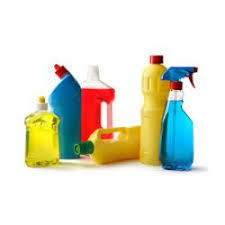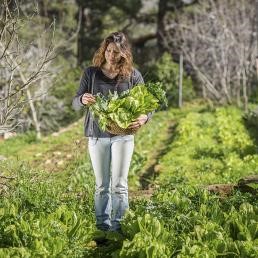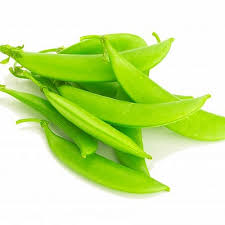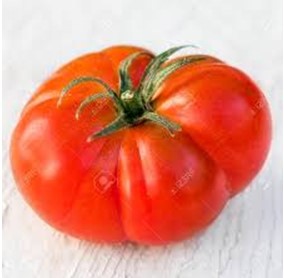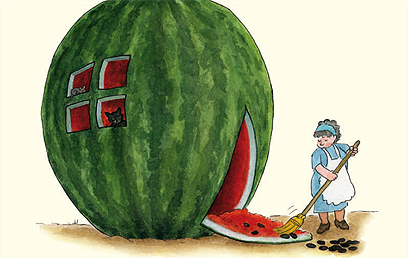This week, as I was weeding the garden, I heard over the fence a series of songs for toddlers.
I experienced a few moments of nostalgia: the original opening song of Parpar Nehmad (פרפר נחמד), an old version of Red Eliynu Aviron (רד אלינו אוירון), even רוץ בן סוסי that made me stop for a moment and wonder how many kids nowadays know what בן סוסי means or what is a פרש בן חיל.
But then I realized I the words I was hearing were וכשאני נקי, אני מותק. I’m not sure whether that is the name, but those are the words that stuck. Well, as it typically happens when the hands are busy, especially it it’s with a monotonous repetitive action, the head tends to wander off and thoroughly analyze the words of the song–how the dirt quickly escapes, and the virtue of cleanliness.
Although Passover has passed, and cleanliness is no longer at the top of the agenda. Nowadays, we no longer compare between those that merely dusted and those who diligently cleaned the panels too, who scrubbed and who also polished until the bleach fumes burned his eyes and he coughed a little, it was so shiny. But this topic, of the virtue of cleanliness and the methods of reaching it, remains relevant throughout the year, and does not receive nearly enough criticism by public opinion in terms of its ecological impact – on the external environment, as well as on the immediate environment, our bodies.
The topic is not criticized because much of what we do does not do any good to any of these environments, but rather it benefits the commercial considerations of the manufacturers.
Just like food products which are extremely sweet and have no nutritional value are often based on very cheap raw materials (such as various types of corn syrup that has been processed, concentrated and refined in various waysto enhance its flavor and lower its production costs), so the end product is very sweet and very cheap –a similar thing happens with cleaning and hygiene products.
One article cannot possibly cover the topic, but a curious Google search (as most things begin) reveals the less sympathetic side of many of those products we are accustomed to buying in pharmacies and retail shops: shampoo, which we consider an essential products for maintaining healthy hair, also contain salts and other substances which over time destroy the hair; “industrial” soaps contain various substances that dry the skin (it's the classic industrial cycle – the soap dries the skin, causing the need to use body lotion after a shower) and damage its natural outer layer of protection.
Most cosmetic materials, intended for skin care, are water based. As crazy as it sounds, face creams that cost hundreds, sometimes thousands of shekels, contain about 80% water. Where there is water there are preservatives, because if it didn’t contain them, it would be exposed to bacterial contamination.
Therefore, each finger smear applies the skin with nourishment, a lot of water, and preservatives too. What's the alternative? Check that your products are oil based. When using essential oils, the product is concentrated and requires only a small amount, also avoid preservatives.
The variety of ecological consumption in relation to hygiene products is very broad, and anyone can choose what suits them, in terms of preferences and goals. When my friend was pregnant for the first time, she was looking to replace her face cream, which contained substances her doctor had forbidden her to use during pregnancy (retinol, if I remember correctly).
Her google search of alternatives led her to adopt a completely natural skin care routine, she replaced her laundry detergent (because she really didn't want those allergens on the baby's skin, and actually – not on any of her family's skin), then also the dish soap (because over time, tiny amounts make it into the mouth via the dishes anyway) and also began using ecological diapers (for a while she used disposable biodegradable diapers, and then moved to the reusable kind – and she is very pleased. She used to imagine that every kid that enters the world comes with his own little hill, the size of her living room, of diapers on their way to the landfill, which will take many, many years to decompose. Eventually, there will be no more place).
Anyone with a garden at home with a composter, or happen to have a gray water recycling system, can benefit twice from using environmentally friendly detergents –the water can used for the garden. There are those who delve into the composition of the cosmetics they use and after a while learn how to prepare their own products.
There are those who don’t make on their own, but notice that all kinds of allergies and skin reactions have disappeared after they started using products that have not been overly bleached and processed with aggressive materials (this is especially true for you, dear women).
One can argue about global warming (the fact is, it’s argued upon) –is it happening or not, and if it is, is it because of human activity or is it natural. But as to the effect of accumulated harmful chemicals, which take decades, if not centuries, to decompose, as a result of human activity – it is much more difficult to argue.
Plastic-filled diapers do not naturally get buried in the earth, not even once in a millennia. Neither do synthetic detergents that harm water reservoirs and the life inside them, and us as well. But there is an alternative! It is much more pleasant, gentle and beneficial (and typically smells better, but that's my opinion). Welcome to check out our store!
Take care and stay healthy!
Yours,
Maggie's Garden Team
Forecast:
In the ORGANIC vegetable baskets we expect (draft only):
Cucumber
Tomato
Lettuce
Potato
Colrahbi
Cabbage
Coriander
Celery
Swiss chard
The Large organic vegetable baskets also include:
Pumpkin
Parsley
Kale
In the ORGANIC fruit baskets:
Orange
Bannana
Apple
The large ORGANIC fruit baskets also include:
Grape fruit
Papaya
The ORGANIC Green Basket:
Dill
A kind of lettuce
Celery
Sprouts
Swiss Chard
Kale
Green onion

